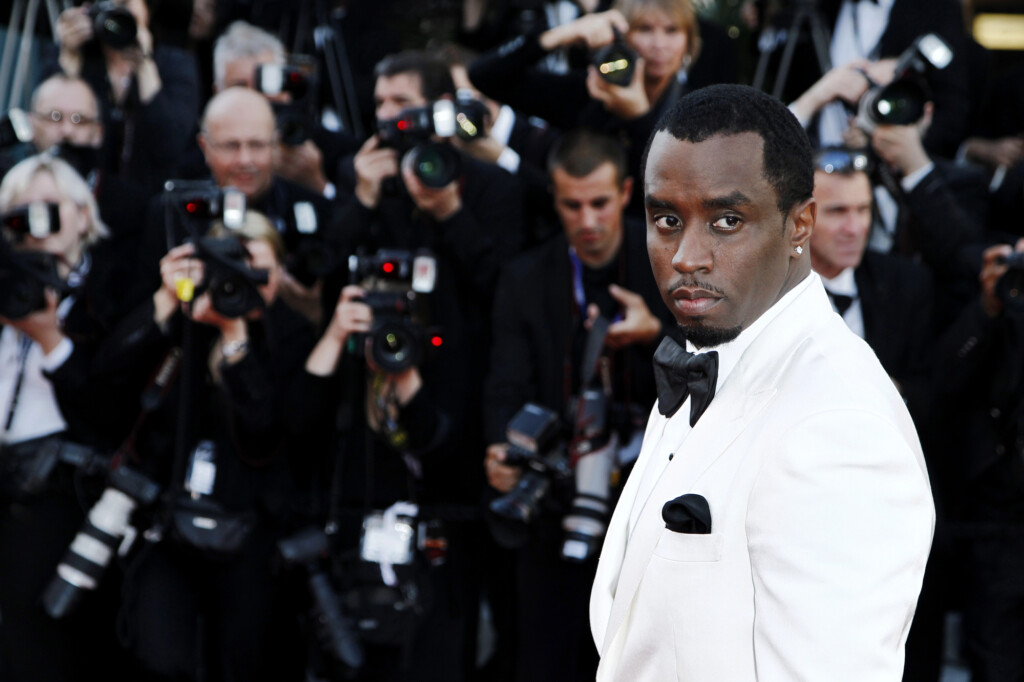Over the last three decades, Bad Boy Entertainment has wowed us with hit songs from a roster of relatable and talented artists.

Puffy redefined the negative connotation of a “bad boy” into that of a braggadocio showman with an astute fashion sense and an abundance of hubris that oozed likeability. We partied to the music, attended the concerts, made the songs anthems, and bought into the ‘ghetto fabulous’ lifestyle he sold us, which grew into decadence accompanied by his many monikers. And while the music beautifully centered as our life’s soundtrack, at the helm of Bad Boy Records sat its beast.
It’s been shy of a year since news first broke with startling allegations surrounding mogul Sean Combs. Eight lawsuits have been filed: seven by women and one by a man. On September 16th, 2024, Combs was arrested in Manhattan after a grand jury indicted the rap mogul. This arrest follows raids by Homeland Security on both his Miami and L.A. homes back in March. Although this seems like Diddy’s downfall, writer Craig Jenkins sums it up best: ‘This is our dance with Diddy,’ so it’s only fair we do-si-do.
As soon as we heard two bottles clicking together and the chant ‘bad boy, come out and play,’ we all knew what was about to happen. In 1994, Sean Combs, known then as Puffy and previously Andre Harrell’s intern, launched his Bad Boy imprint with his first two acts, rappers Craig Mack and The Notorious B.I.G. Throughout the 90s, the record label became a staple in the Hip Hop genre.
Puff crafted a recognizable sound using beloved and popular samples, essentially inventing what we now know as the remix. The man, the label, and the genre catapulted into the musical stratosphere. For the next decade, Puffy became known as a man who could work any room he was in—an entrepreneur’s template, a walking brand that launched a clothing line, magazine, cologne, liquor and more. We watched a myth become a mogul, all while making a string of hits that revolutionized the genre, and we still dance to it today. Combs’ empire ascended him to unbelievable heights, but whispers of loathsome behavior laid dormant as his stardom soared.
This isn’t our first rodeo with Diddy, City College Stampede aside. Questionable incidents have plagued him for years. In 1999, he attacked Nas’ then-manager Steve Stout with a champagne bottle over a music video edit. That same year, a nightclub shooting involving his then-girlfriend J.Lo left three people injured.
Other incidents have remained under the radar, including a 2015 altercation where Diddy was arrested for assault with a deadly weapon after throwing a kettlebell (of undisclosed weight) at his son Justin’s UCLA football coach, allegedly for berating his son in front of teammates. He later described the incident as a “miscommunication.” These events suggest there might be some truth to the rumors about the music titan’s behind-the-scenes persona.
In November 2023, Pandora’s box was flung wide open when Cassie Ventura, Combs’ former artist and girlfriend, filed the initial lawsuit under New York State’s Adult Survivors Act, which allows victims to sue beyond the normal statute of limitations. Since then, the floodgates have remained open.
For argument’s sake, we might say that one leaky pipe can lead to two or three, but feigning ignorance only isolates the victim instead of holding the predator accountable. Cassie’s lawsuit was the first to break the silence, and now Dawn Richard of Danity Kane, from Making the Band, has come forward. Both women have shared harrowing accounts of violence, domestic abuse, sex trafficking, manipulation, drug use and lewd behavior, not to mention the fear they endured at the hands of Diddy.
Still, the main question surrounding their allegations is: Why did they wait so long? I argue that using phrases like “Why wait until now?” constitutes a form of abuse. Such statements shield silence with shame, strip credibility, imply that the claims are exaggerated and reinforce the power that the abuser held over the victims. Two things can be true simultaneously: You can validate someone’s experience and recognize that yours is different. However, it’s time we ask ourselves: Why does the timing matter?
Often, we wonder what would cause someone to commit such hurtful acts. I’m quickly reminded how money, notoriety and power can amplify one’s unresolved demons. Sadly, this is where Hip Hop, now 50 years old, must take accountability for years of promoting deleterious and toxic behavior as a lifestyle. It has allowed figures like Diddy to metaphorically get away with “murder,” receiving mere slaps on the wrist as the community continues to turn a blind eye. In the end, what does this say about Hip Hop? And what does it mean for hip-hop’s legacy?
For decades, we’ve heard rumbling rumors surrounding Puffy’s revolting conduct and legendary parties—the ones we all dreamt of attending one day. But Diddy’s alluring public persona overshadows the whispers that warp around him, especially when it’s led by his beloved musical contributions. We never questioned the infrastructure; we kept dancing as his acts jumped ship and the litany of allegations got buried, simply because he’s just that good at selling us a dream.
For years, Diddy has hidden in plain sight. The countless reinventions and name changes can be viewed as a plea to become a better person or a ploy to become a bigger beast. At the root of it all is his nickname ‘Puff,’ derived from his infamous temper—a temper that went unchecked and fueled his volatile behavior. While this temper drove the creation of the Bad Boy empire and the iconic Bad Boy sound we adore, it also allowed the beastly bad boy to remain unchecked.




